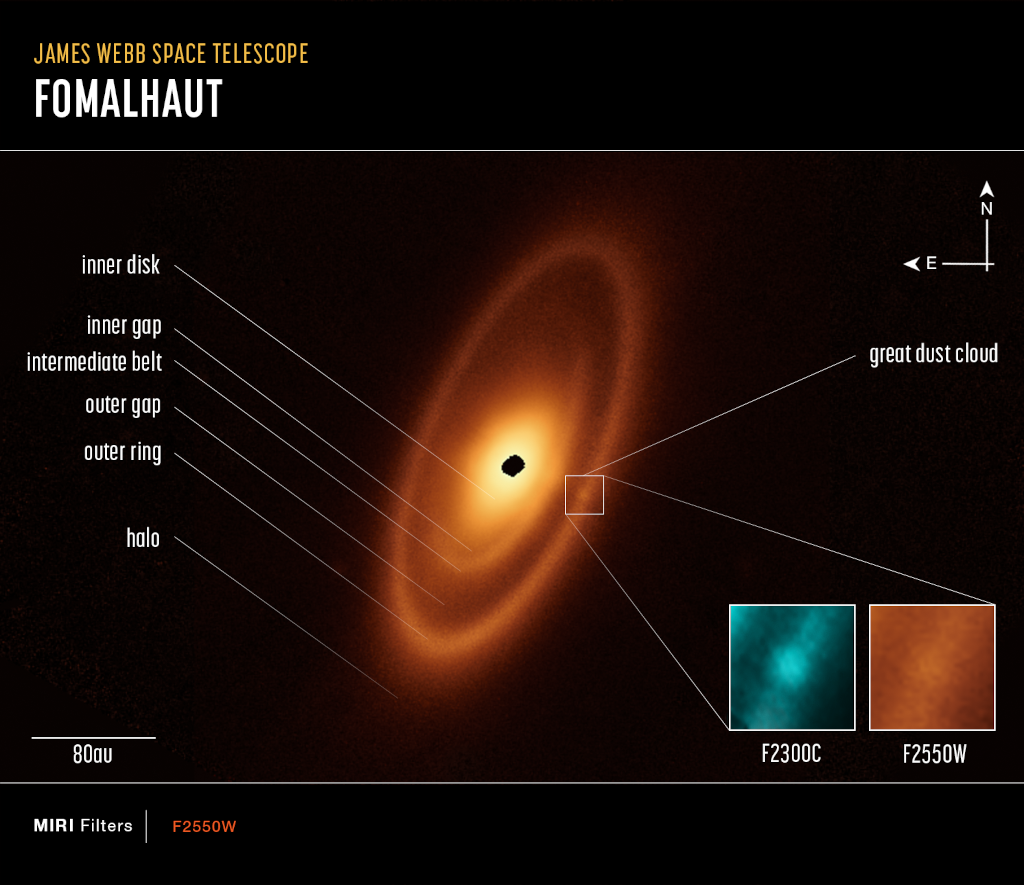Fomalhaut’s Dusty Debris Disk

Copyright:
Fomalhaut is a bright star, a 25 light-year voyage from planet Earth in the direction of the constellation Piscis Austrinus. Astronomers first noticed Fomalhaut’s excess infrared emission in the 1980s. Space and ground-based telescopes have since identified the infrared emission’s source as a disk of dusty debris surrounding the hot, young star related to the ongoing formation of a planetary system. But this sharp infrared image from the James Webb Space Telescope’s MIRI camera reveals details of Fomalhaut’s debris disk never before seen, including a large dust cloud in the outer ring that is possible evidence for colliding bodies, and an inner dust disk and gap likely shaped and maintained by embedded but unseen planets. An image scale bar in au or astronomical units, the average Earth-Sun distance, appears at the lower left. Fomalhaut’s outer circumstellar dust ring lies at about twice the distance of our own Solar System’s Kuiper Belt of small icy bodies and debris beyond the orbit of Neptune.
Courtesy of NASA Astronomy Picture of the Day